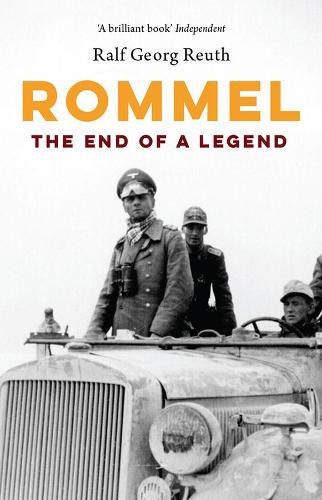Readings Newsletter
Become a Readings Member to make your shopping experience even easier.
Sign in or sign up for free!
You’re not far away from qualifying for FREE standard shipping within Australia
You’ve qualified for FREE standard shipping within Australia
The cart is loading…






Erwin Rommel is the best-known German field commander of World War II. Repeatedly decorated for valor during the First World War, he would go on to lead the German Panzer divisions in France and North Africa. Even his British opponents admitted to admiring his apparent courage, chivalry and leadership, and he became known by the nickname Desert Fox. His death, in October 1944, would give rise to speculation for generations to come on how history should judge him. To many he remains the ideal soldier, but, as Reuth shows, Rommel remained loyal to his Fuhrer until forced to commit suicide, and his fame was largely a creation of the master propagandist Joseph Goebbels. Stripping away the many layers of Nazi and Allied propaganda, Reuth argues that Rommel’s life symbolizes the complexity and conflict of the German tragedy: to have followed Hitler into the abyss, and to have considered that to be his duty.
$9.00 standard shipping within Australia
FREE standard shipping within Australia for orders over $100.00
Express & International shipping calculated at checkout
Erwin Rommel is the best-known German field commander of World War II. Repeatedly decorated for valor during the First World War, he would go on to lead the German Panzer divisions in France and North Africa. Even his British opponents admitted to admiring his apparent courage, chivalry and leadership, and he became known by the nickname Desert Fox. His death, in October 1944, would give rise to speculation for generations to come on how history should judge him. To many he remains the ideal soldier, but, as Reuth shows, Rommel remained loyal to his Fuhrer until forced to commit suicide, and his fame was largely a creation of the master propagandist Joseph Goebbels. Stripping away the many layers of Nazi and Allied propaganda, Reuth argues that Rommel’s life symbolizes the complexity and conflict of the German tragedy: to have followed Hitler into the abyss, and to have considered that to be his duty.